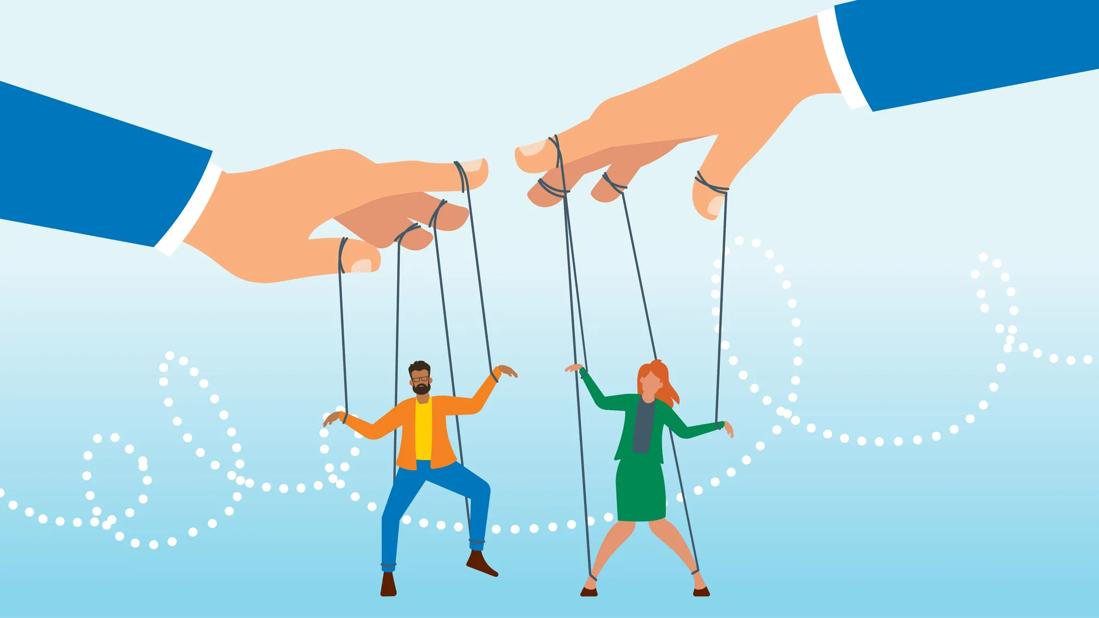Sociopathy is a form of ASPD, characterized by a lack of empathy, disregard for others and persistent breaking of rules

Image content: This image is available to view online.
View image online (https://assets.clevelandclinic.org/transform/658effda-8a46-4cdd-bac6-13b00b1c359f/puppetmaster-sociopath-1486663588)
Hands manipulate marionette people
If you have difficulty forming genuine emotional connections and have persistent trouble with the law, you may be curious whether you have sociopathy (also known as antisocial personality disorder). This complex condition involves several different patterns of behavior, most notably, having a consistent disregard for the rules and rights of others. But it’s not always easy to identify or treat.
Advertisement
Cleveland Clinic is a non-profit academic medical center. Advertising on our site helps support our mission. We do not endorse non-Cleveland Clinic products or services. Policy
Psychologist Ramone Ford, PhD, talks about what having sociopathy really means and how to deal with it.
“Sociopath” is an outdated, harmful term once used to describe someone who’s been diagnosed with antisocial personality disorder (ASPD). Sociopathy itself isn’t a formal diagnosis. But the behaviors it describes are often part of the diagnostic criteria for ASPD. The most recent edition of the Diagnostic and Statistical Manual of Mental Disorders (DSM-5-TR) defines ASPD as a disorder that causes you to:
People living with ASPD often engage in consistent and repetitive abusive behaviors like gaslighting, manipulation and deceit — often without even knowing it or acknowledging it.
“We’ve turned away from using the term ‘sociopath’ because it’s been used in the past to demonize people,” explains Dr. Ford. “But in reality, someone who’s living with ASPD has a hard time developing empathy for other people. As a result, they may have a hard time trusting others and sometimes, fall into an isolated pattern of thinking.”
There’s not one universal list of signs that applies to everyone living with ASPD. But nearly all signs of this condition involve significant, consistent and persistent disregard for other people. Some of these signs may include, but aren’t limited to, these common characteristics or behaviors:
Advertisement
If you have ASPD, you may not always realize when you’re doing something wrong. In some cases, you may not care if your actions have negative effects on other people. And sometimes, Dr. Ford says that both perspectives can be true.
“Sociopathy can be very difficult and challenging because it’s so deep-seated,” he continues. “It can be hard if you’re living with ASPD to reframe some of your thinking or change some of your behaviors because they’ve become such a core part of who you are.”
When confronted about their behavior, someone with ASPD may rely on misdirection, sarcasm, lying or invalidation to achieve their desired outcome. Sometimes, this involves making physical threats. Other times, it may involve passive aggression. Some common phrases people living with ASPD use when dealing with conflict include:
Now, anyone can exhibit these behaviors without ever having ASPD. But someone who has ASPD will exhibit these behaviors consistently and persistently and have difficulty learning from these experiences.
“When someone minimizes what you’re saying, feeling or suggesting, those are red flags,” notes Dr. Ford. “People living with ASPD often undermine your experiences, making you question your own reality.”
If you’re living with ASPD, you may not recognize that there are ongoing issues with your behaviors. Because of this, you may feel uncomfortable with the idea of going to therapy or seeking treatment.
“People living with ASPD often don’t seek out treatment unless a court order is involved or someone strongly requests they seek help,” says Dr. Ford. “The best thing anyone can do is gently recommend a psychiatric or psychological evaluation if their behavior is causing problems, especially if they’re harming themselves, as well as harming you.”
Advertisement
Beyond professional medical help, the most important thing is making sure you set healthy boundaries — and re-set them any time they’re crossed or broken down.
“Make sure there’s a limit on how much they can intrude on your rights,” advises Dr. Ford. “Have that appropriate distance you’re comfortable with to avoid getting hurt.”
Advertisement

Sign up for our Health Essentials emails for expert guidance on nutrition, fitness, sleep, skin care and more.
Learn more about our editorial process.
Advertisement
BPD is associated with more frequent mood swings and difficult relationships, while bipolar disorder has more persistent, long-lasting depressive and manic episodes
Psychopathy informs how you develop emotional and psychological connections, while sociopathy is rooted in breaking social rules
Create a support system, a paper trail, emotional boundaries and a strong sense of self
Narcissistic personality disorder is a mental health condition, not an insult
Being the center of attention doesn’t mean you have to exile your guest stars
People-pleasing, perfectionism and putting others first are all signs of this harmful behavior
Perfectionism isn’t all bad, but here’s how to make sure it hasn’t become toxic
People with this syndrome exhibit social behaviors and traits considered immature
Although it could be used as a moisturizer, this new trend is not recommended
Communicating clear limits helps protect your time, energy and emotional well-being
High cholesterol can be genetic, but testing and treatment can lower your heart disease risk